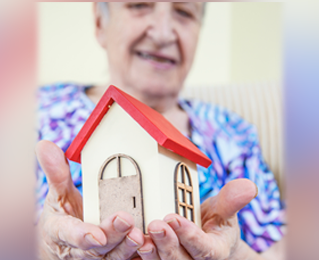[Tmdl.edu.vn] In a first for Indian home loan borrowers, Bank of Baroda has announced differential rates for its home loans, linked to the borrower’ credit score. We examine the implications for home loan seekers and the housing finance industry
Your credit history and credit score used to play a decisive role in determining whether you would get a home loan or not and it would stop there. You would get a home loan, if you had a good credit score and would fail to qualify for the home loan, if your credit score was not up to the minimum fixed by the lending institute. Now, Bank of Baroda has gone one step further and will offer differential rates of interest on home loans, based on your credit standing. How does it work? Let us discuss.
var adpushup = window.adpushup = window.adpushup || {};
adpushup.que = adpushup.que || [];
adpushup.que.push(function() {
adpushup.triggerAd(“4cbc6643-b533-4344-bc4b-1c337dc43234”);
});
What is a credit score?
All banks and NBFCs are required to share the data of financial transactions, with respect to all the loans and credit cards, with one of the credit bureaus. Presently, there are four such bureaus in India but CIBIL (Credit Bureau Information of India Limited) is the pioneer and has the first-mover advantage. These credit bureaus compile, collate and maintain the data of borrowers, on the basis of the payment history received from various participating institutes.
CIBIL has a scoring methodology, to indicate the credit worthiness of a borrower, ranging between 300 and 900. Higher the score, better is the person’s creditworthiness. It is also proof of good behaviour, with respect to the credit facilities availed by the person. As per the CIBIL’s website 79% of the loans approved, are for individuals with a score greater than 750. So, 750 is considered as the standard score for loan eligibility by lenders. All the lenders request for such credit history from any of the credit bureaus, before giving a home loan to a borrower.
As CIBIL has the largest database of borrowers, therefore, banks mostly rely on the CIBIL score while lending.
What is Bank of Baroda offering?
Presently, the banks are required to benchmark their lending rates against the MCLR (marginal cost of funds-based lending rate). The banks are supposed to have this MCLR for different periods, based on their marginal cost of borrowing for the corresponding period. The banks are not allowed to lend below the MCLR. In effect, the banks keep an extra margin over their MCLR, for fixing home loans. This margin is called as the ‘spread’.
[Tmdl.edu.vn] How to improve your credit score before applying for a home loan
The present MCLR of Bank of Baroda is 8.35%. It has decided to reward people with good credit standing, by offering them home loans without charging any spread (i.e., by lending to them at the MCLR of 8.35%). So, an individual who has a credit score of 760 and above, will be given a home loan at 8.35%. For borrowers with credit scores between 725 and 759, the rate of interest will be 8.85% with a spread of 0.50%. Borrowers with credit scores of 724 and below, will have to pay 9.35% – a spread of 1% over the MCLR. Hence, a borrower with excellent credit score, stands to gain a 1% difference in the rate of interest.
Savings on home loan EMI
How it translates into actual numbers, can be better understood by an example. A person with a credit score of 825 and who takes a home loan of Rs 1 crore for 20 years at 8.35%, will have a monthly EMI of Rs 85,835. However, a person with a credit score of 715, who gets the home loan at 9.35%, will pay a monthly EMI of Rs 92,236. This translates into a difference of Rs 6,401 every month. Over the tenure of the loan (20 years), the person with the lower credit score will pay an extra amount of Rs 15.36 lakhs – almost 15% of the loan amount.
The rationale behind offering concessional home loan interest rates
Why do banks offer concessional rates to a person with a higher credit score than someone with a lower score, when both the borrowers will repay their home loan? It is because the probability that the person with a CIBIL score of more than 760 will default on his loan payment, is lower than the probability of default by a person with a lower score. Moreover, banks have to incur additional expenses for recovering the dues from even secured borrowers like home loan borrowers and therefore, the premium.
This can be better explained by the higher rate of interest charged on personal loans than on home loan. Personal loans are given without any security and therefore, the banks run higher risk of not getting the loan repaid, than a person who has taken a home loan as the bank has the house as security.
(The author is a taxation and home finance expert, with 30 years’ experience)
Source: https://tmdl.edu.vn/us
Copyright belongs to: Tmdl.edu.vn





